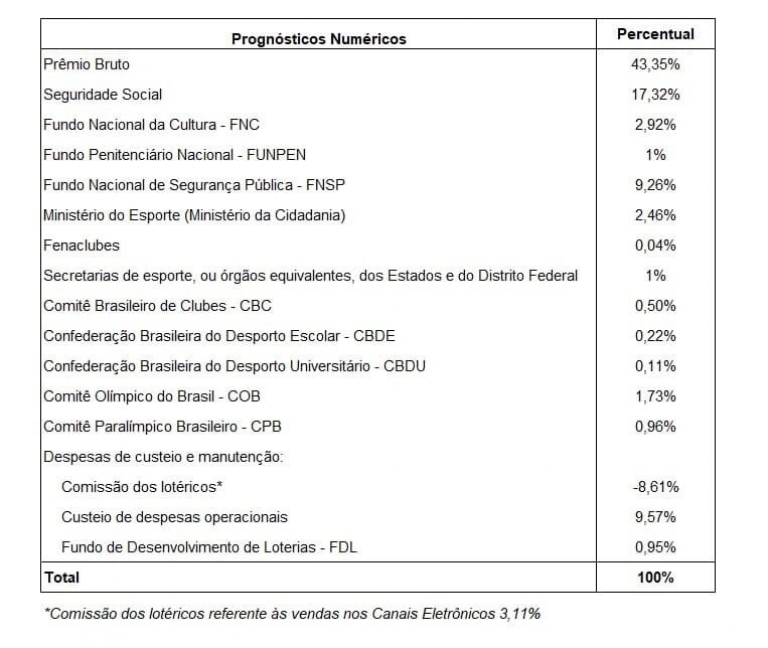

Casino games were legally prohibited in Brazil in the 1940s, when then President Eurico Gaspar Dutra issued decree law 9.215 / 46, prohibiting the operation of so-called "games of chance" throughout the national territory, authorized in 1934, under the presidency of Getúlio Vargas.
Such an act, defended primarily based on the religious morals of the First Lady of the time, resulted in the unemployment of Brazilians, closing of companies, and weakened tourism in the country. According to history, it was under this influence that Dutra used his presidentialism to start the validity of the decree law that prohibited the practice and exploitation of casinos in Brazil.
This false moralistic view imposed by the president's family, however, led to a drop in tourism revenue in Brazil and, consequently, a loss of employment for Brazilians.
Were it not enough, such a ban also culminated in the fall in tax collection, harming the Union, States and Municipalities, which remains for all these last 7.5 decades, because the clandestine activity of the casinos has continued to exist ever since, as reported by the operations police and broadcast in the media.
It is estimated in millions of reais the revenue of the "Jogo do Bicho” in the country, which no longer count with the entry of the respective taxes. Legalization is not carried out by legislative inertia itself.
Those who want to test their luck at the games still need to resort to trips abroad, such as, for example, Las Vegas, in the United States, or Macau, in China, places whose revenue is significantly increased thanks to the players, especially composed of tourists.
In Brazil, what comes closest to this practice are lottery games, administered by the Union through Caixa Econômica Federal, and also with state lotteries. Accordingly, the State restricts the range of permission and regulation of casinos and, therefore, prevents the movement of capital that could generate taxation, the promotion of public coffers and the generation of jobs, in short, the circulation of wealth.
Several bills have been introduced over the years, trying to bring legislative developments to what is already adopted in much of the world. Recently, Bill 530/19 were presented, for example, by the Chamber of Deputies, and 2,648 / 19 and 4,495 / 20 by the Senate, which seek the implantation of casinos as a way of adding to the Brazilian tourism sector. It is worth remembering that of the 108 countries that make up the World Tourism Organization, only two prohibit gambling: Brazil and Cuba.
In a survey conducted by Paraná Pesquisa, together with the Brazilian Legal Gaming Institute (IJL) in 2019, it was pointed out that most of the country's parliamentarians are in favor of liberation, with the majority opposed by conservatives, such as the evangelical bench. It is clear, therefore, that this prohibition also concerns the outdated traditionalism and the difficulty of progress of a portion of the country's legislative representatives.
To get an idea of the collection of taxes and the allocation to others, see the example of the famous Mega-Sena, which brings directly from the website (Click here), the following sentence: "Whoever plays in Mega-Sena has millions of reasons to bet and millions of Brazilians to help. Part of the amount collected from the bets is passed on to the federal government, which can then make investments in the areas of health, safety, culture, and sport, benefiting the entire population. " And the table below, obtained from the aforementioned website, is quite informative to demonstrate how the amount collected from the bets is distributed:

In summary, the 30% rate (Income Tax) will apply to the payment of the gross prizes (30% rate on 43.35% = 13% _IR) and the remaining 56.65% will be allocated to investments in priority areas to guarantee social development in Brazil, explained in the table above.
It is against this backdrop that Brazil's social and political evolution in relation to casinos is necessary, and it is imperative to recognize that gambling is a source of income for the country, in addition to generating jobs directly and indirectly in the commerce and service sectors, especially in tourism, without the need for tax incentives.
The prohibition emanated by decree law 9.215 / 46 is not only obsolete, but, in this century, in 2020, it is even retrograde. It has no basis other than the religiosity of the time, already thirsty to be overcome in such a touristic Brazil, where great tax, economic and employment advantages would be found.
The coordinator of the parliamentary gaming front in the National Congress, deputy Bacelar (Pode-BA) said: "This set of games can generate 600 thousand jobs for the country and about R$ 15 billion annually in taxes." These 74 years of losses must be paralyzed, Brazil needs to continue, leaving the clandestine for the legality of the games, especially in this peculiar moment of the pandemic generated by COVID-19, which has brought and will bring negative reflexes in the coming years.
For these reasons, bets on "games of chance" show more positive aspects, overcoming the negative ones, which can be minimized by the legislation itself. The reduction of crime due to the lack of regulation of casinos, as well as employability and taxation are the main ones of the several points covered by the advance of the bills in progress. It is expected that the majority of the parliamentary positioning will allow the country to enter the statistics of legal concessions by casinos and, consequently, also to advance in other necessary sectors, including social ones.
Place your bets!
Stanley Martins Frasão
Chairman of the OAB / MG Commission of Law Firms. Sectional Counselor of OAB / MG. Lawyer at Homero Costa Advogados.
Nathália Caixeta Pereira de Castro
Collaborator at Homero Costa Advogados.
Source: Migalhas